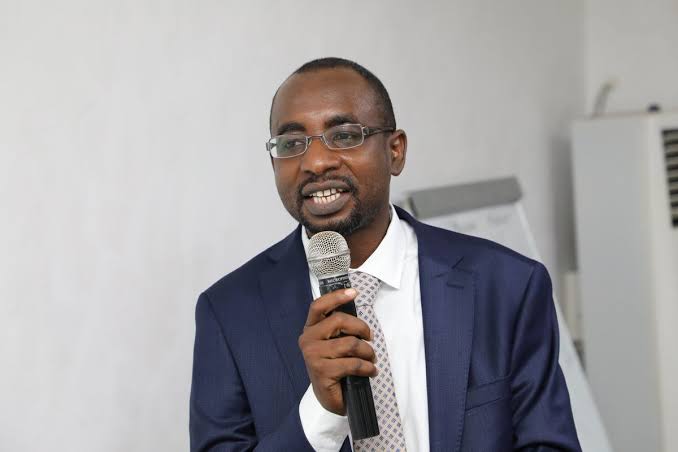As part of efforts towards the transformative journey of strengthening National Security with total commitment to robust cybersecurity measures and digital trust, the Director General of the National Information Technology Development Agency (NITDA), Kashifu Inuwa CCIE has urged the public and private sectors to invest more in the training of cybersecurity professionals, citing that the benefits of securing organisations and processes, far outweighs the cyber-attacks.
The DG made this plea as a Guest Speaker while presenting a paper titled “Alternative to Cybercrime” at the National Cybercrimes Summit 2024, organised by the Economic and Financial Crimes Commission at the Banquet Hall of the Presidential Villa.
The summit, with the theme; Alternate to Cybercrime: Optimising Cyber Skills for National Development,” is a platform that brought together captains of industries, heads of security agencies, traditional and religious leaders to share ideas, expertise and experiences with a focus on enhancing digital skills as strategy to combat cybercrime.
Inuwa emphasised the urgent need to address the growing menace of cybercrime in Nigeria, while proposing alternative paths for Nigeria’s youth and strategies to fortify national cyber resilience.
He detailed the complexities of cybercrime, noting that it is no longer restricted to laptops and desktops but extends to mobile devices, smart TVs, cars, and more, as everything becomes interconnected through technology.
Inuwa outlined five major categories of cybercrime identified by research which are; technical products or services attacks, attacks and extortion, data or identity theft, Scam and Cashing Out or Money Laundering and stated that the financial sector remains the most vulnerable in Africa, with over 3,300 cyber-attacks reported weekly.
While stressing that cybercrime is a global issue that affects every facet of the digital economy, particularly in Nigeria, he said “We are confronted with an urgent reality, Nigeria, a nation with a rich culture, talent and limitless potential is unfortunately grappling with the global menace of cybercrime but today, we are going to look at alternatives to cybercrime.”
Enumerating the underlying factors that trigger cybercrimes such as unemployment, financial incentives and lack of awareness of the legal and moral implications, Inuwa called for a more holistic approach to combating cybercrime, not only through law enforcement but also by offering viable alternatives to those tempted by illegal online activities.
“We need to look at alternatives to cybercrime and the government must focus on digital literacy, skills development, and job creation to steer young Nigerians away from cybercriminality,” he averred.
Inuwa reiterated the importance of providing positive alternatives for Nigerian youth and stressed the potential of the digital economy to create millions of jobs and contribute significantly to Nigeria’s GDP.
The highlight of the event witnessed the first lady of the Federal Republic of Nigeria, Senator Oluremi Tinubu, unveiling and launching the EFCC Rapid Response Centre, a response desk against cybercrime that can be accessed at any time of the day.
Other dignitaries present at the event were the Chairman of the Nigeria Governor’s Forum and Kwara State Governor, AbdulRahman AbdulRazaq, the Katsina State Governor, Dikko Umar Radda, Zamfara State Governor, Dauda Lawal, Sultan of Sokoto, Alhaji Muhammadu Sa’ad Abubakar, Obi of Onitsha, Igwe Alfred Nnaemeka Achebe, the Ooni of Ile Ife who was represented by the Alara of Ilara, Oba Olufolarin Olukayode Ogunsanwo, the President, Christian Association of Nigeria, Dr Daniel Okoh and many others.













